2019 年 12 月英语四级真题及答案第三套
Writing
Part I
Directions: Forthispart,youareallowed30minutestowritea lettertoa foreign friend
whowantstostudyinChina.Pleaserecommendauniversitytohim.Youshouldwriteatleast
120 words but no more than 180 words.
(30 minutes)
Part Ⅱ
Listening Comprehension
(25 minutes)
Section A
Directions: In this section, you will hear three news reports. At the end of each
news report, you will hear two or three questions. Both the news report and then
questions will be spoken only once. After you hear a question, you must choose the
best answer from the four choices marked A), B), C) and D).Then mark the corresponding
letter on Answer Sheet 1with a single line through the centre.
Questions 1 and 2 are based on the news report you have just heard.
1.
A) The number of nurses has dropped to a record low.
B) There is a growing shortage of medical personnel.
C) There is discrimination against male nurses.
D) The number of male nurses has gone down..
2.
A) Cultural bias.
B)
C)
D)
Inadequate pay.
Educational system.
Working conditions.
Questions 3 and 4 are based on the news report you have just heard.
3.
A) He fell out of a lifeboat.
B) He lost his way on a beach.
C) He was almost drowned.
D) He enjoyed swimming in the sea.
4.
A) The beach is a popular tourist resort.
B) The emergency services are efficient.
C) The beach is a good place to watch the tide.
�
D) The lifeboats patrol the area round the clock.
Questions 5 to 7 are based on the news report you have just heard.
5.
A) It became an online star.
B) It broke into an office room.
C) It escaped from a local zoo.
D) It climbed 25 storeys at one go.
6.
A) Send it back to the zoo.
B)
C)
D)
Release it into the wild.
Return it to its owner.
Give it a physical checkup.
7.
A) A raccoon can perform acts no human can.
B)
C)
D)
A raccoon can climb much higher than a cat.
The raccoon became as famous as some politicians.
The raccoon did something no politician could.
Section B
Directions: In this section, you will hear two long conversations. At the end of
each conversation, you will hear four questions. Both the conversation and the
questions will be spoken only once. After you hear a question, you must choose the
best answer from the four choices marked A), B), C) and D). Then mark the
corresponding letter on Answer Sheet 1 with a single line through the centre.
Questions 8 to 11 are based on the conversation you have just heard.
8.
A) She got a well-paying job in a bank.
B) She received a bonus unexpectedly.
C She received her first monthly salary.
D) She got a pay raise for her performance.
9.
A) Several years ago.
Two decades ago.
B)
Right after graduation.
C)
D)
Just last month.
�
10.
A) He sent a small check to his parents.
B) He took a few of his friends to a gym.
C) He immediately deposited it in a bank.
D) He treated his parents to a nice meal.
11.
A) Buy some professional clothes.
B)
C)
D)
Budget her salary carefully.
Join her colleagues for gym exercise.
Visit her former university campus.
Questions 12 to 15 are based on the conversation you have just heard.
12.
A) He has a difficult decision to make. B) He has been overworked recently.
C) He has just quarreled with his girlfriend. D) He has just too many things to attend
to.
13.
A) Give priority to things more urgent. B) Turn to his girlfriend for assistance.
C) Think twice before making the decision. D) Seek advice from his family and advisor.
14.
A) His parents and advisor have different opinions. B) He is not particularly keen
on the job offered.
C) He lacks the money for his doctoral program. D) His girlfriend does not support
his decision.
15.
A) They need time to make preparations.
B) They need to save enough money for it.
C)
D)
They haven’t started their careers yet.
They haven’t won their parents’ approval.
Section C
Directions: In this section, you will hear three passages. At the end of each passage,
you will hear three or four questions. Both the passage and the questions will be
spoken only once. After you hear a question, you must choose the best answer from
the four choices marked A), B), C) and D). Then mark the corresponding letter on
Answer Sheet 1 with a single line through the centre.
Questions 16 to 18 are based on the passage you have just heard.
�
16.
A) Acquiring information and professional knowledge.
B) Using information to understand and solve problems.
C) Enriching social and intellectual lives.
D) Expressing ideas and opinions freely.
17.
A) Improving mind-reading strategies.
B)
C)
D)
Reading classic scientific literature.
Playing games that challenge one’s mind.
Traveling to different places in the world.
18.
A) Give others freedom to express themselves.
B) Expose themselves to different cultures.
C) Discard personal biases and prejudices.
D) Participate in debates or discussions.
Questions 19 to 21 are based on the passage you have just heard.
19.
A) The nature of relationships between dogs.
B) The reason a great many people love dogs.
C) Why dogs can be faithful friends of humans.
D) How dogs feel about their bonds with humans.
20.
A) They have an unusual sense of responsibility.
B) They can respond to humans’ questions.
C) They can fall in love just like humans.
D) They behave like other animals in many ways.
21.
A) They have their own joys and sorrows.
B)
C)
D)
They experience true romantic love.
They help humans in various ways.
They stay with one partner for life.
Questions 22 to 25 are based on the passage you have just heard.
22.
A) A cow bone.
B) A rare animal.
�
C) A historical site.
D) A precious stone.
23.
A) Measuring it.
B) Preserving it.
C)
D)
Dating it.
Identifying it.
24.
A) The site should have been protected. B) The boy’s family had acted correctly.
C) The boy should have called an expert. D) The channel needs to interview the boy.
25.
A) Search for similar fossils elsewhere. B) Ask the university to reward Jude.
C) Conduct a more detailed search.D) Seek additional funds for the search.
(40 minutes)
Reading Comprehension
Part Ⅲ
Section A
Directions:In this section, there is a passage with ten blanks. You are required to select
one word for each blank from a list of choices given in a word bank following the passage.
Read the passage through carefully before making your choices. Each choice in the bank is
identified by a letter. Please mark the corresponding letter for each item on Answer Sheet
2 with a single line through the centre. You may not use any of the words in the bank more
than once.
Questions 26 to 35 are based on the following passage.
Millions of people travel by plane every single day. If you’re planning on being one
of them soon, you might not be looking forward to the 26feeling air travel often leaves you
with.
Besides the airport crowds and stress, traveling at such a high altitude has real effects
on the body. Although the pressure of the cabin is 27to prevent altitude sickness, you could
still 28 sleepiness or a headache. The lower oxygen pressure found in an aircraft cabin is
29to that at 6,000 to 8,000 feet of altitude. A drop in oxygen pressure can cause headaches
in certain 30. To prevent headaches, drink plenty of water, and avoid alcohol and coffee.
Airplane food might not really be as tasteless as you 31thought. The air you breathe in
a plane dries out your mouth and nose, which can affect your sense of taste. Perception of
sweet and salty foods dropped by almost 30 percent in a simulation of air travel. However,
you can make your taste buds active by drinking water. A dry mouth may 32taste sensitivity,
but taste is restored with fluids.
Although in-flightinfections 33in dry environments like airplanes, your risk of getting
sick from an airplane is actually low because of the air 34 used. Unless you’re sitting next
to someone who is coughing or sneezing, you shouldn’t worry too much about getting sick.
However, bacteria has been shown to live on cabin surfaces, so wash your hands 35.
�
A) adjustedF)frequentlyK)reduce
B) channelsG)individualsL)renovated
C)equivalentH) originallyM) smooth
D)experience I) particularN)thrive
E) filtersJ) primarilyO)unpleasant
Section B
Directions: In this section, you are going to read a passage with ten statements attached
toeachstatementcontainsinformationgiveninoneoftheparagraphs.Identifytheparagraph
fromwhichtheinformationisderived.Youmaychooseaparagraphmorethanonce.Eachparagraph
ismarkedwithaletter.Answerthequestionsbymarkingthecorresponding letteronAnswer
Sheet 2.
A SouthKoreanCityDesigned for the Future Takes on a Life of Its Own
[A] Getting around a city is one thing—and then there’s the matter of getting from one city
to another. One vision of the perfect city of the future: a place that offers easy access
to air travel.In 2011, a University of North Carolina business professor named John Kasarda
published a book called Aerotropolis: The Way We’ll Live Next. Kasarda says future cities
should be built intentionally around or near airports. The idea, as he has put it, is
to offer businesses “rapid, long-distance connectivity on a massive scale.”
[B]“The 18th century really was a waterborne century, the 19th century a rail century, the
20th century a highway, car, truck century—and the 21st century will increasingly be
an aviation century, as the globe becomes increasingly connected by air,”Kasarda says.
Songdo, a city built from scratch in South Korea, is one of Kasarda’s prime examples.
It has existed for just a few years.“From the get-go, it was designed on the basis of
connectivity and competitiveness,”says Kasada. “The government built the bridge
directly from the airport to the Songdo International Business District. And the surface
infrastructure was built in tandem with the new airport.”
[C] Songdo is a stone’s throw from South Korea’s IncheonAirport, its main international
hub. But it takes a lot more than a nearby airport to be a city of the future. Just building
a place as an “international business district” doesn’t mean it will become one. Park
Yeon Soo conceived this city of the future back in 1986. He considers Songdo his baby.
“I am a visionary,” he says. Thirty years after he imagined the city, Park’s baby is
close to 70 percent built, with 36.000 people living in the business district and 90,000
residents in greater Songdo. It’s about an hour outside Seoul, built on reclaimed tidal
flats along the Yellow Sea, There’s a Coast Guard building and a tall trade tower, as
well as a park, golf course and university.
D) Chances are you’ve actually seen this place. Songdo appears in the most famous music video
ever to come out of South Korea. “Gangnam Style” refers to the fashionable Gangnam
district in Seoul. But some of the video was filmed in Songdo.”I don’t know if you
remember, there was a scene in a subway station. That was not Gangnam. That was actually
Songdo,” says Jung Won Son, a professor of urban development at London’s Bartlett School
of Planning, “Part of the reason to shoot there is that it’s new and nice.”
�
[E] The city was supposed to be a hub for global companies, with employees from all over the
world. But hat’s not how it has turned out. Songdo’s reputation is as a futuristic ghost
town. But the reality is more complicated. A bridge with big, light-blue loops leads into
the business district. In the center of the main road, there’s a long line of flags of
the world. On the corner, there’s a Starbucks and a 7-Eleven—all of the international
brands that you see all over the world nowadays.
[F] The city is not empty. There are mothers pushing strollers, old women with walkers—even
in the middle of the day, when it’s 90 degrees out. Byun Young-Jin chairs the Songdo
real estate association and started selling property here when the first phase of the
city opened in 2005. He says demand has boomed in the past couple of years. Most of his
clients are Korean. In fact, the developer says, 99 percent of the homes here are sold
to Koreans. Young families move here because the schools are great. And that’s the problem:
Songdo has become a popular Korean city—more popular as a residential area than a business
one. It’s not yet the futuristic international business hub that planners imagined.
“It’s a great place to live. And it’s becoming a great place to work,” says Scott
Summers, the vice president of Gale International, the developer of the city. The
floor-to-ceiling windows of his company’s offices overlook Songdo Central Park, with
a canal full of kayaks and paddle boats. Shimmering glass towers line the canal’s edge.
[G]“What’s happened is, because we focused on creating that quality of life first, which
enabled the residents to live here, what has probably missed the mark is for companies
to locate here,” he says. “There needs to be strong economic incentives.” The city
is still unfinished, and it feels a bit like a theme park. It doesn’t feel all that
futuristic. There’s a high-tech underground trash disposal system. Buildings are
environmentally friendly. Everybody’s television set is connected to a system that
streams personalized language or exercise classes.
[H] But Star Trek this is not. And to some of the residents, Songdo feels hollow. “I’m,
like, in prison for weekdays. That’s what we call it in the workplace,” says a woman
in her 20s. She doesn’t want to use her name for fear of being fired from her job. She
goes back to Seoul every weekend. “I say I’m prison-breaking on Friday nights.” But
she has to make the prison break in her own car. There’s no high-speed train connecting
Songdo to Seoul, just over 20 miles away.
[I] The man who first imagined Songdo feels frustrated, too. Park says he built South Korea
a luxury vehicle, “like Mercedes or BMW. It’s a good car now. But we’re waiting for
a good driver to accelerate.”But there are lots of other good cars out there, too. The
world is dotted with futuristic, high-tech cities trying to attract the biggest
international companies
[J] Songdo’s backers contend that it’s still early, and business space is filling up—about
70 percent of finished offices are now occupied. Brent Ryan, who teaches urban design
at MIT, says Songdo proves a universal principle. “There have been a lot of utopian cities
in history. And the reason we don’t know about a lot of them is that a lot of them have
vanished entirely.” In other words, when it comes to cities—or anything else—it is
hard to predict the future.
36. Songdo’s popularity lies more in its quality of life than its business attraction.
�
37. The man who conceives Songdo feels disappointed because it has fallen short of his
expectations.
38. A scene in a popular South Korean music video was shot in Songdo.
39. Songdo still lacks the financial stimulus for businesses to set up shop there.
40. Airplanes will increasingly become the chief means of transportation, according to a
professor.
41. Songdo has ended up different from the city it was supposed to be.
42. Some of the people who work in Songdo complain about boredom in the workplace.
43. A business professor says that a future city should have easy access to international
transportation.
44. Acording to an urban design professor, it is difficult for city designers to foresee what
happen in the future.
45. Park Yeon So. Who envisioned Songdo, feels a parental connection with the city.
Section C
Directions: Thereare2passagesinthissection.Eachpassageisfollowedbysomequestions
or unfinished statements.For each of them there are fourchoices markedA), B),C) and D).
YoushoulddecideonthebestchoiceandmarkthecorrespondingletteronAnswerSheet2with
a single line through the centre.
Passage One
Questions 46 to 50 are based on the following passage.
The fifth largest city in the US passed a significant soda tax proposal that will levy
1.5 cents per liquid ounce on distributors.
Philadelphia’s new measure was approved by a 13 to 4 city council vote. It sets a new
bar for similar initiatives across the county. It is proof that taxes on sugary drinks can
win substantial support outside super-liberal areas. Until now, the only city to successfully
pass and implement a soda tax was Berkeley, California, in 2014.
The tax will apply to regular and diet sodas, as well as other drinks with added sugar,
such as Gatorade and iced teas. It’s expected to raise $410 million over the next five years,
most of which will go toward funding a universal pre-kindergarten program for the city.
While the city council vote was met with applause inside the council room, opponents to
the measure, including soda lobbyists made sharp criticisms and a promise to challenge the
tax in court.
“The tax passed today unfairly singles out beverages—including low- and no-calorie
choices,” said Lauren Kane, spokeswoman for the American Beverage Association. “But most
importantly, it is against the law. So we will side with the majority of the people of
Philadelphia who oppose this tax and take legal action to stop it.”
An industry backed anti-tax campaign has spent at least $4 million on advertisements. The
ads criticized the measure. characterizing it as a“grocery tax.”
Public health groups applauded the approved tax as a step toward fixing certain lasting
health issues that plague Americans. “The move to recapture a small part of the profits from
an industry that pushes a product that contributes to diabetes, obesity and heart disease
in poorer communities in order to reinvest in those communities will sure be inspirational
�
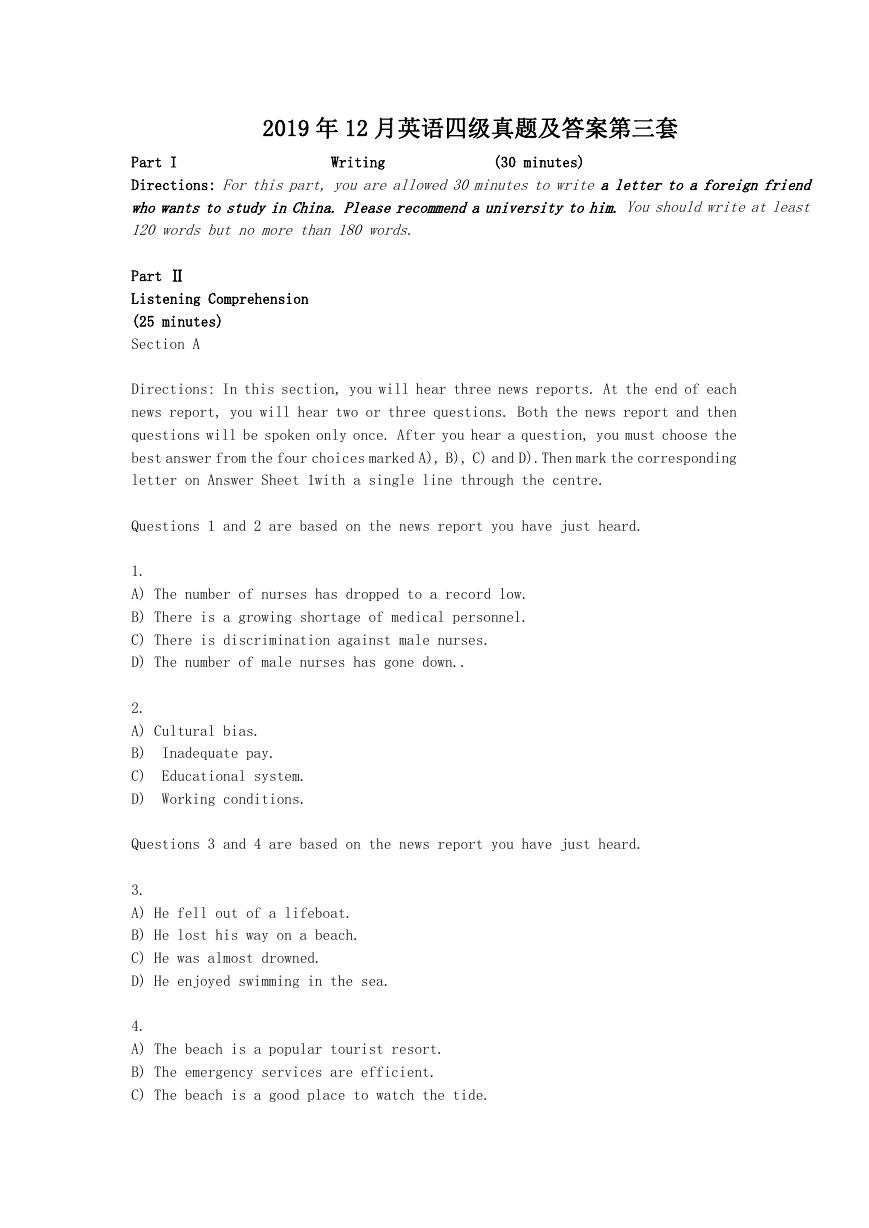
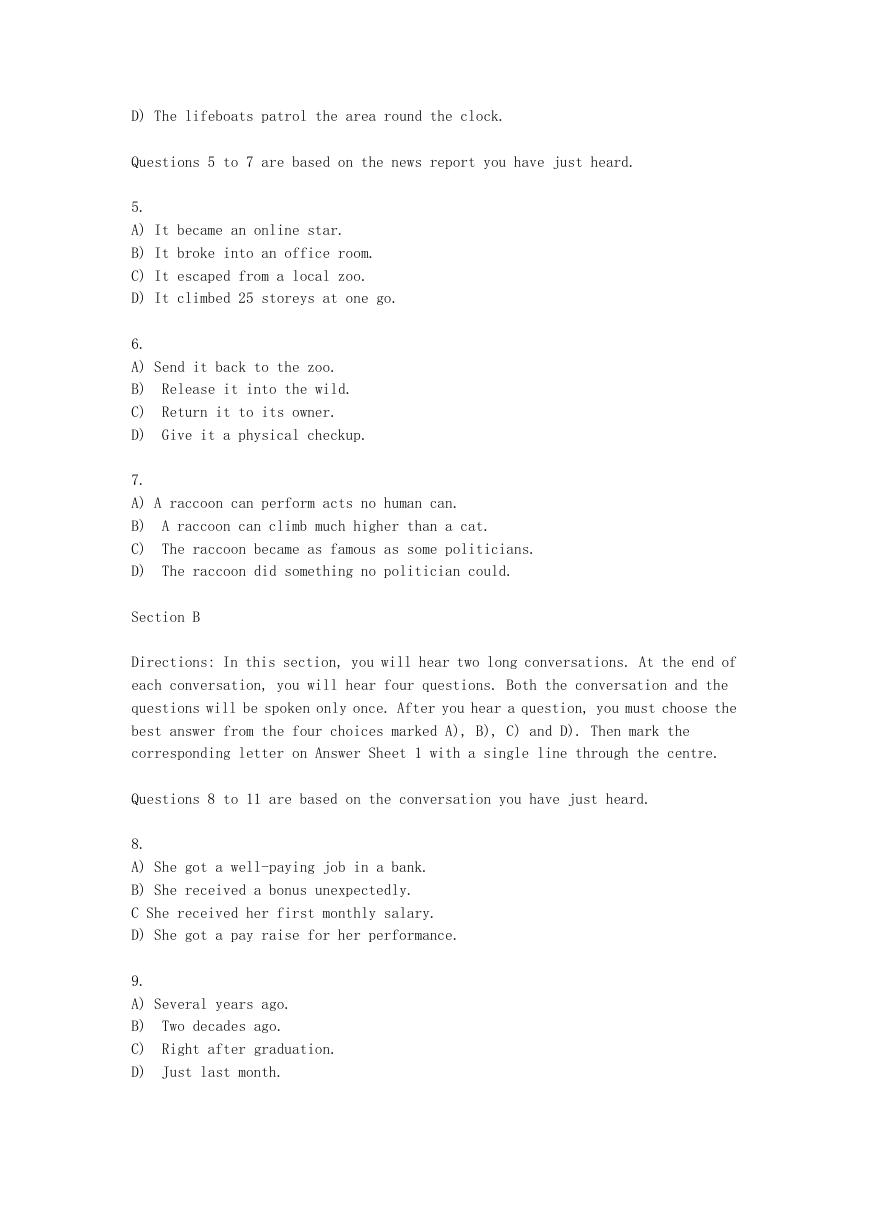
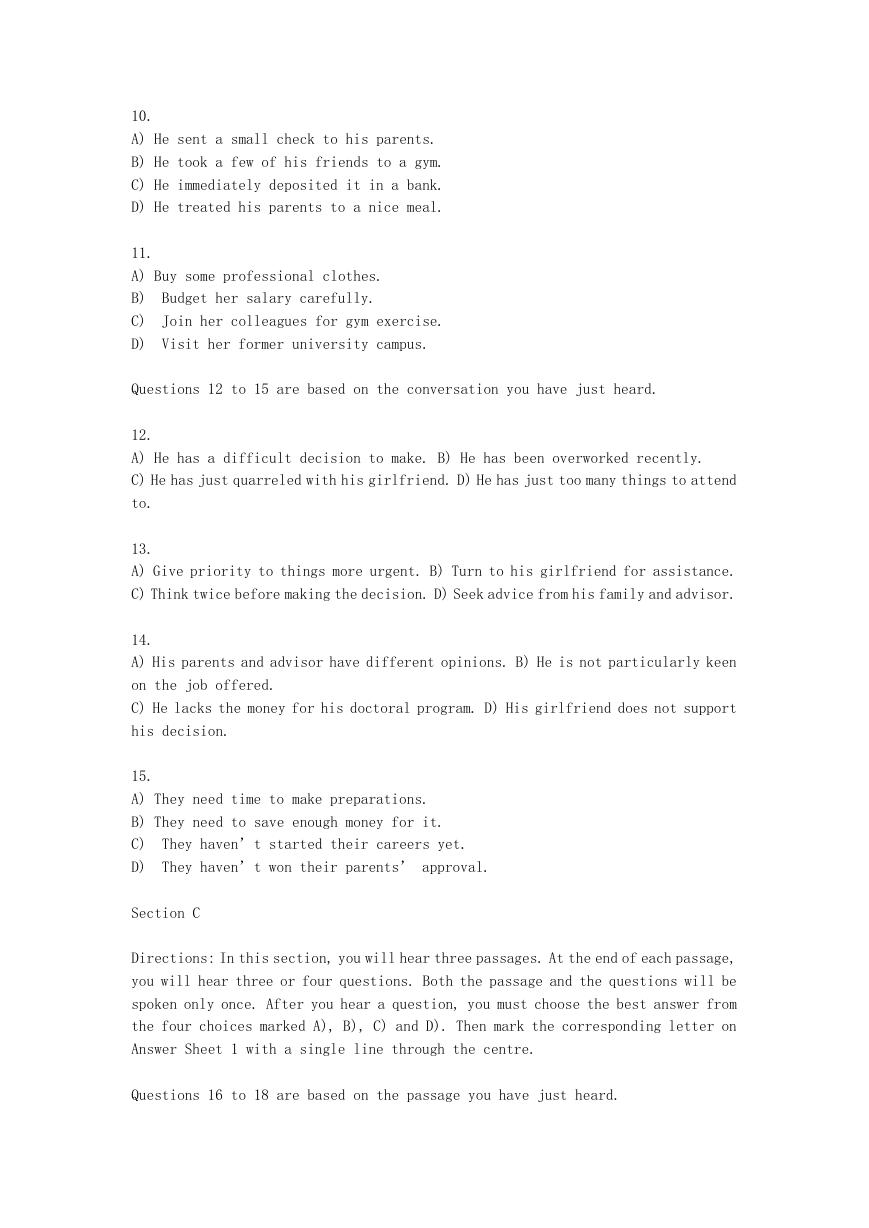

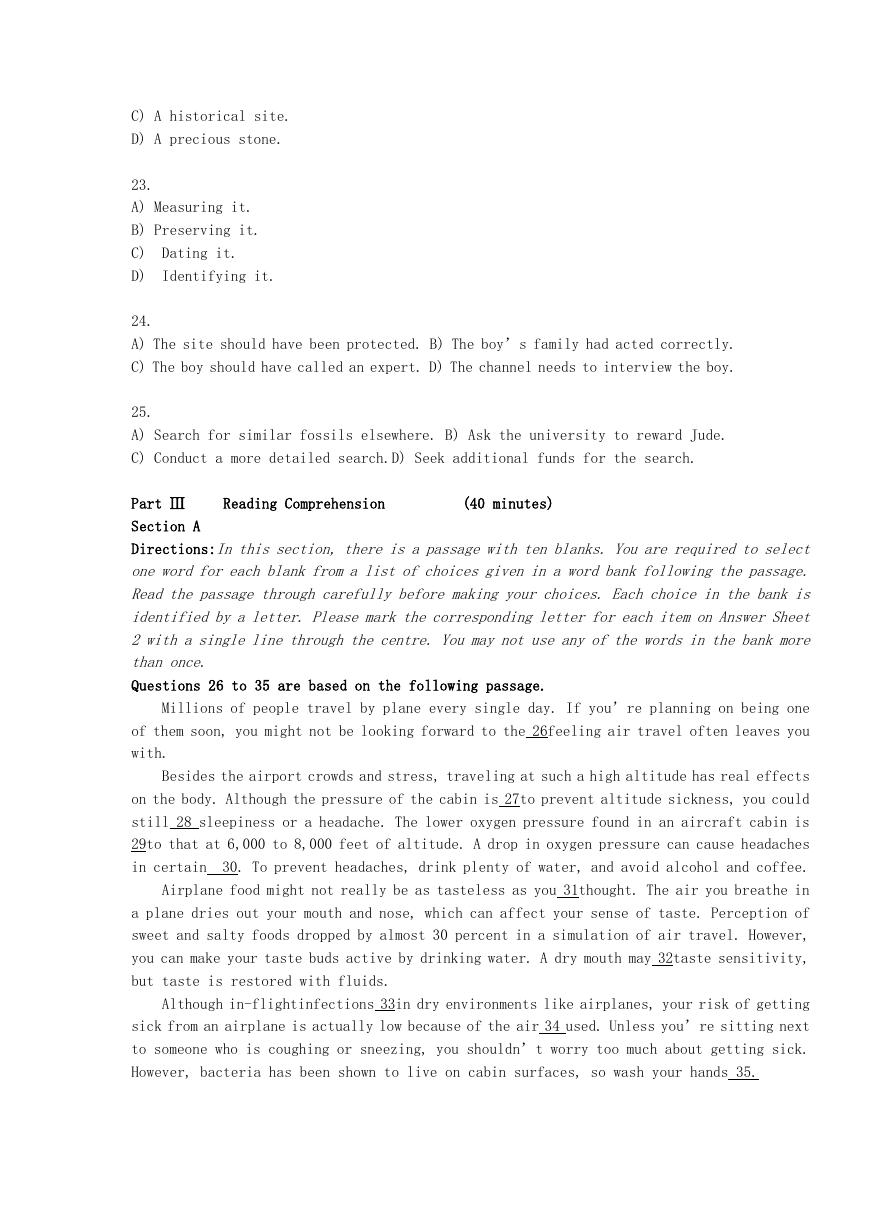
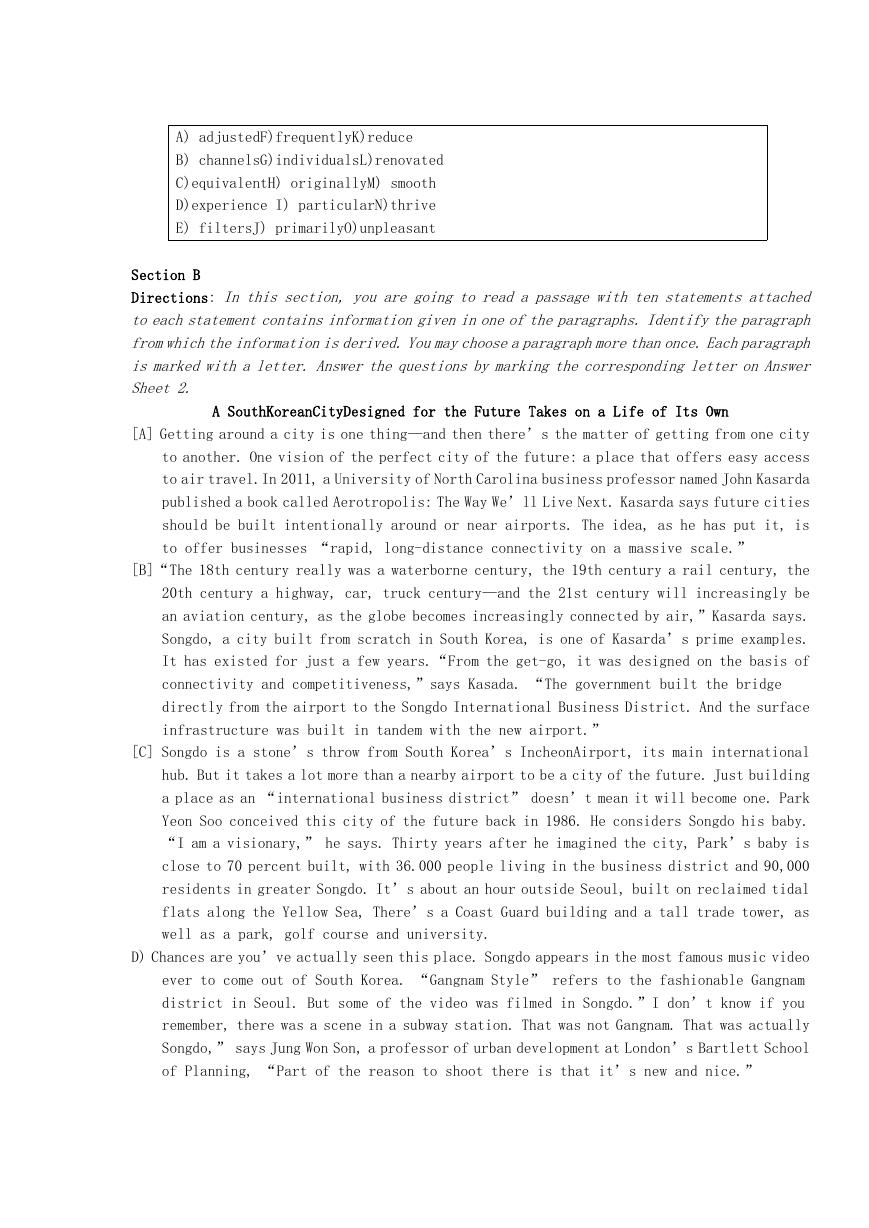

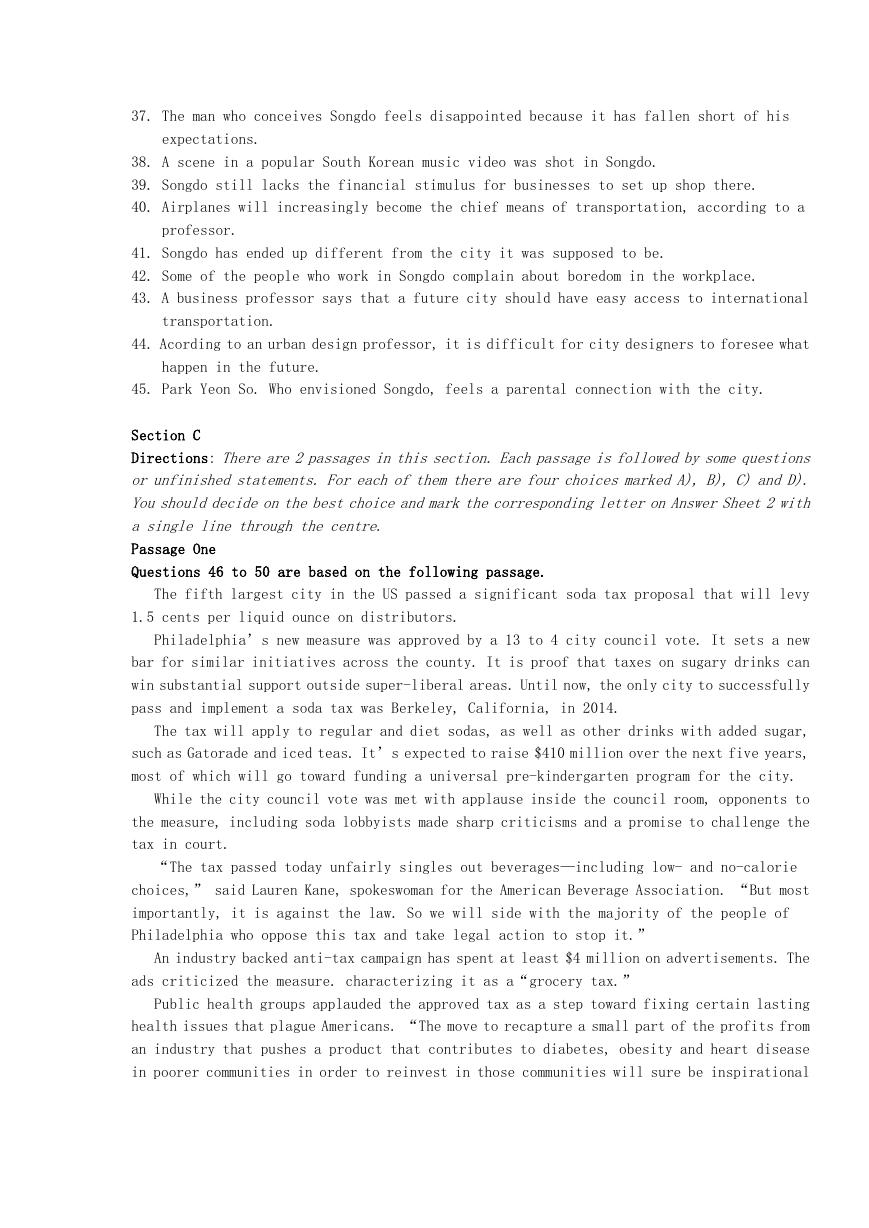








 2023年江西萍乡中考道德与法治真题及答案.doc
2023年江西萍乡中考道德与法治真题及答案.doc 2012年重庆南川中考生物真题及答案.doc
2012年重庆南川中考生物真题及答案.doc 2013年江西师范大学地理学综合及文艺理论基础考研真题.doc
2013年江西师范大学地理学综合及文艺理论基础考研真题.doc 2020年四川甘孜小升初语文真题及答案I卷.doc
2020年四川甘孜小升初语文真题及答案I卷.doc 2020年注册岩土工程师专业基础考试真题及答案.doc
2020年注册岩土工程师专业基础考试真题及答案.doc 2023-2024学年福建省厦门市九年级上学期数学月考试题及答案.doc
2023-2024学年福建省厦门市九年级上学期数学月考试题及答案.doc 2021-2022学年辽宁省沈阳市大东区九年级上学期语文期末试题及答案.doc
2021-2022学年辽宁省沈阳市大东区九年级上学期语文期末试题及答案.doc 2022-2023学年北京东城区初三第一学期物理期末试卷及答案.doc
2022-2023学年北京东城区初三第一学期物理期末试卷及答案.doc 2018上半年江西教师资格初中地理学科知识与教学能力真题及答案.doc
2018上半年江西教师资格初中地理学科知识与教学能力真题及答案.doc 2012年河北国家公务员申论考试真题及答案-省级.doc
2012年河北国家公务员申论考试真题及答案-省级.doc 2020-2021学年江苏省扬州市江都区邵樊片九年级上学期数学第一次质量检测试题及答案.doc
2020-2021学年江苏省扬州市江都区邵樊片九年级上学期数学第一次质量检测试题及答案.doc 2022下半年黑龙江教师资格证中学综合素质真题及答案.doc
2022下半年黑龙江教师资格证中学综合素质真题及答案.doc